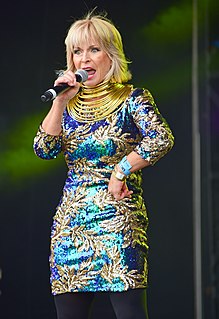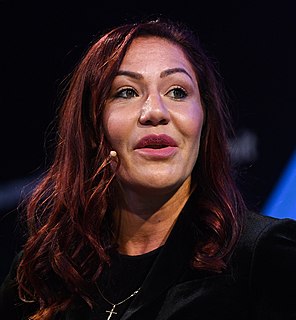A Quote by Toyah Willcox
Until I was seven, I was very close to my mother because I was so ill and she had to teach me how to walk and talk. But then she had another child, a little girl called Fleur, who died. When she came home from hospital there was a bit of a distance between us. It was never talked about again.
Related Quotes
My mother had said me, "All right, you've been raised, so don't let anybody else raise you. You know the difference between right and wrong. Do right. And remember - you can always come home." And she continued to liberate me until she died. On the night she died, I went to the hospital. I told my mom, "Let me tell you about yourself. You deserved a great daughter, and you got one. And you liberated me to be one. So if it's time for you to go, you may have done everything God brought you here to do."
My mother was very passionate about life and she would do anything for us. And she had to fight alone to raise us. We never had a lot of money for extras or anything. She had to work six days a week, and then she would do breakfast, lunch and dinner. She was a super-woman! For me, I don't know how she did it with three kids.
The idea of the book ["The Japanese Lover"] came in a conversation that I had with a friend walking in the streets of New York. We were talking about our mothers, and I was telling her how old my mother was, and she was telling me about her mother. Her mother was Jewish, and she said that she was in a retirement home and that she had had a friend for 40 years that was a Japanese gardener. This person had been very important in my friend's upbringing.
After my mother died, I learned that she'd had a scholarship to the University of Nebraska, but - in kind of a tradition that females don't do things like that - her father prevented her from going. She always said that she wasn't allowed to go to college, but until she died, I never knew that she'd had this scholarship.
Rilke has a very bizarre relationship to women because his mother had an older child, a girl who died when she was a baby. So when Rilke was born she named him Sophie and dressed him as a girl until he was 7. And psychologically, the repercussions of that made him the genius that he is. By the time he was 35, he was continuously falling in love with older women, mother figures, spiritual mothers.
As a child, Kate hat once asked her mother how she would know she was in love. Her mother had said she would know she was in love when she would be willing to give up chocolate forever to be with that person for even an hour. Kate, a dedicated and hopeless chocoholic, had decided right then that she would never fall in love. She had been sure that no male was worth such privation.
My mother never talked about sex. I was on the Dr. Ruth [ Westheimer] show once - this is years and years and years ago - and it was her Mother's Day show. And I didn't know what we were going to talk about but what she decided we were going to talk about was female masturbation. My mother had invited all her girlfriends. And you know these were all women in their late seventy's maybe they were in their eighty's by then and then and they were horrified because Dr Ruth had a little she had a little chart up you know "female masturbation".
I was born an ugly duckling due to my mother's ill health. She wasn't supposed to be pregnant, there were all kinds of complications, she couldn't survive a cesarean section etc. She said, "They didn't hand me a child, they handed me a purple melon." I heard that when I had grown up and had no idea of the whole story because the family album had pictures of a covered carriage and my mother smiling so I assumed I was asleep.


































